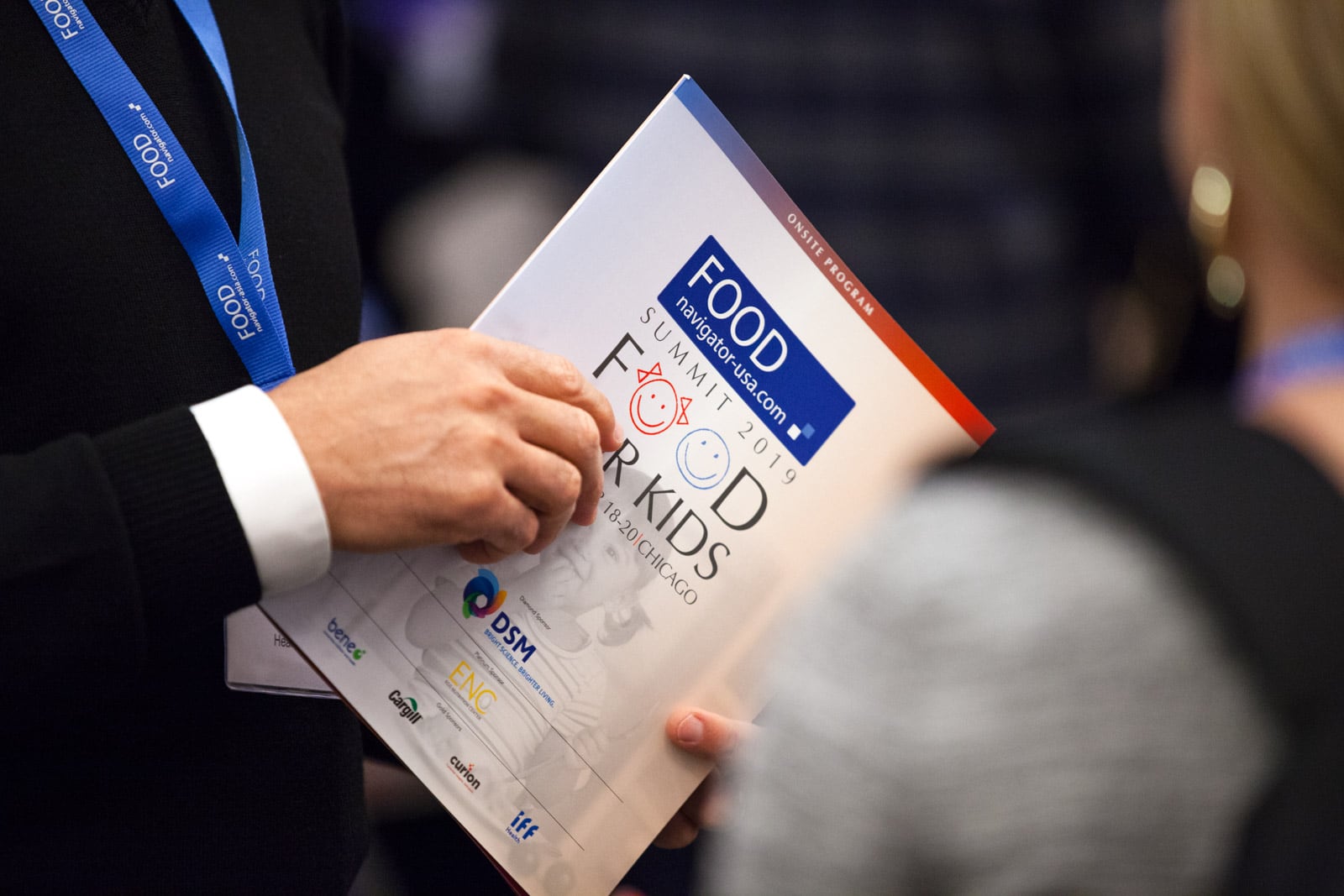If you didn't make it to Chicago last week for the FoodNavigator-USA FOOD FOR KIDS summit, you missed an inspirational ensemble of industry experts, pediatricians, consumer health advocates, Chicago parents, market researchers and brand strategists, covering everything from brainfood for kids to heavy metals in baby food.
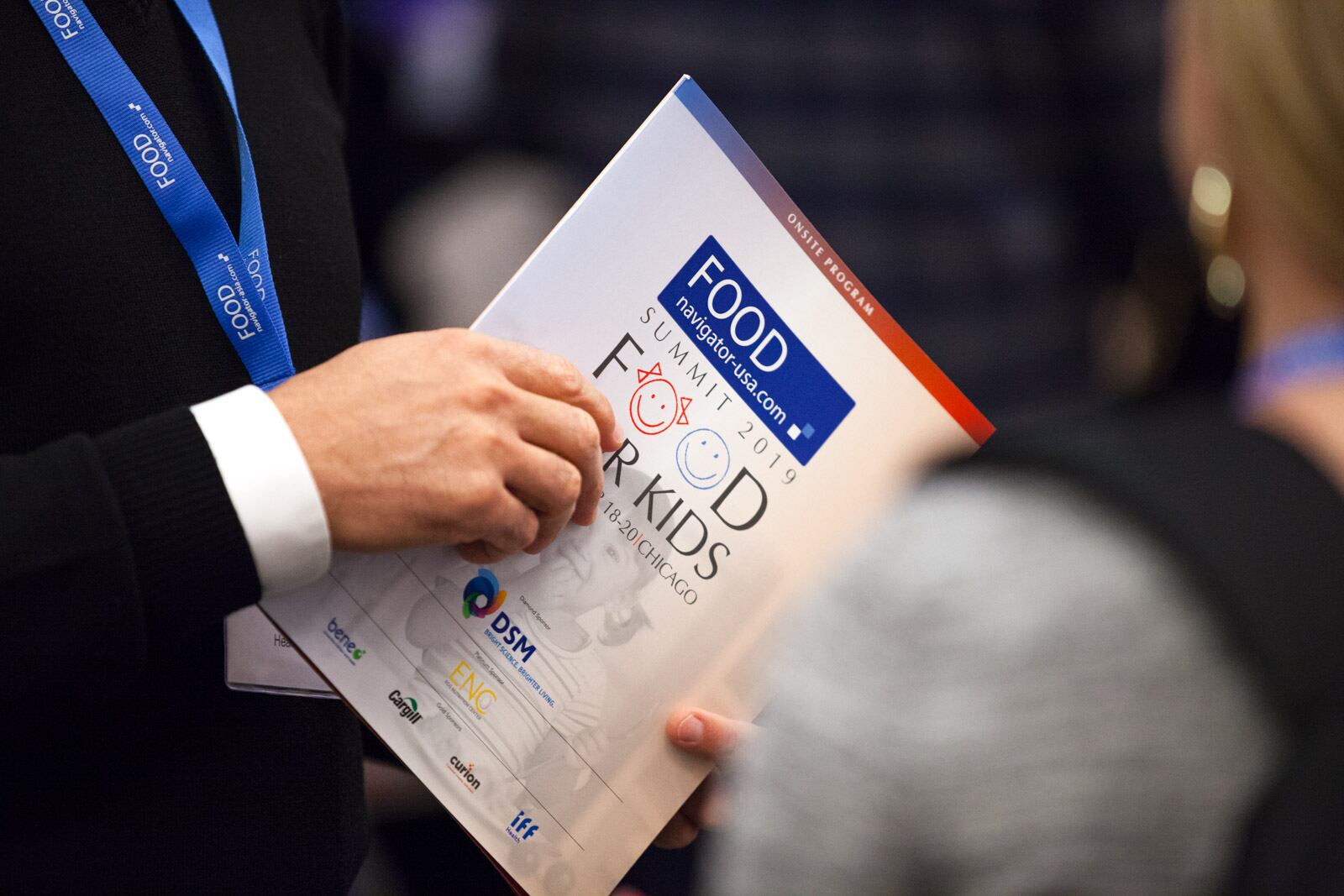
![The parents' panel: 'I don't want to eat dinner at 5.45pm [when the kids want to eat] so we don't always eat the same meals'](https://www.foodnavigator-usa.com/resizer/v2/GRJEVF7GUVMFPAGCA4UZP4Q37Y.jpg?auth=856772d4be7ed7c88d8bc899ca4f5cf6d40eb39ef25d9e9214a7d8ff634cc2d0&smart=true)
We opened with a lively panel of Chicagoland parents, with Andrea (far left) noting that she didn't want to eat dinner at 5.45pm when the kids want to eat, and that food shopping with young children "is one of my least favorite things to do," while Michael (2nd from left) looked for foods with a "short and simple" ingredients list.

For Tiago (with mic), "fast food is my reward" (as opposed to a reward for his kids' good behavior), while Wendie (3rd from right) noted that grandparents buy her kids sugary soda, whereas she watches their sugar intake more carefully. Carly noted that she only started reading food labels once she had children.
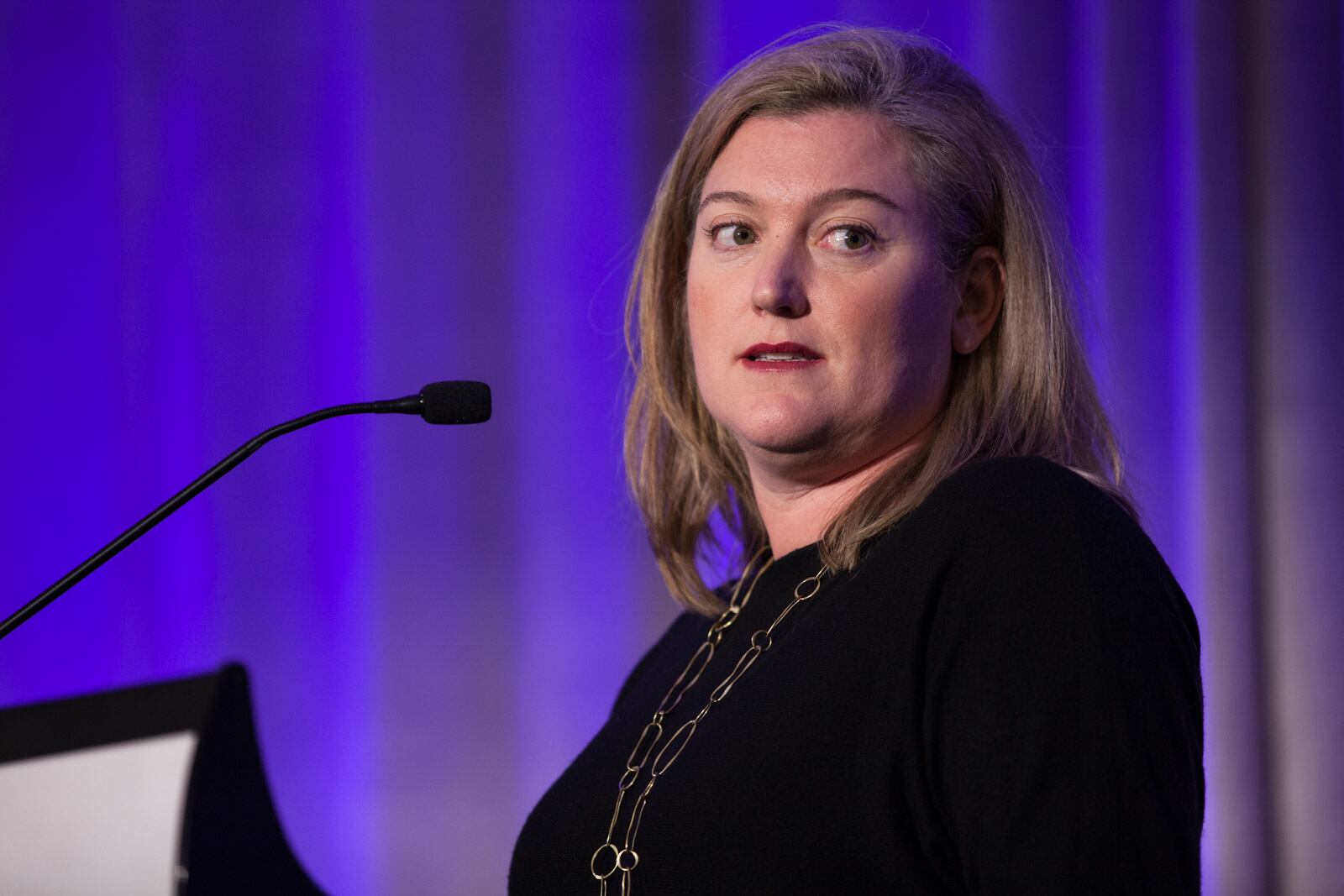
One of three winners of our 2019 FOOD FOR KIDS trailblazers challenge, Jennifer Zeszut at 'veggie-first' baby food brand Cerebelly reckons there’s space in the category for products that give babies the key nutrients their growing brains need, exactly when they need them.
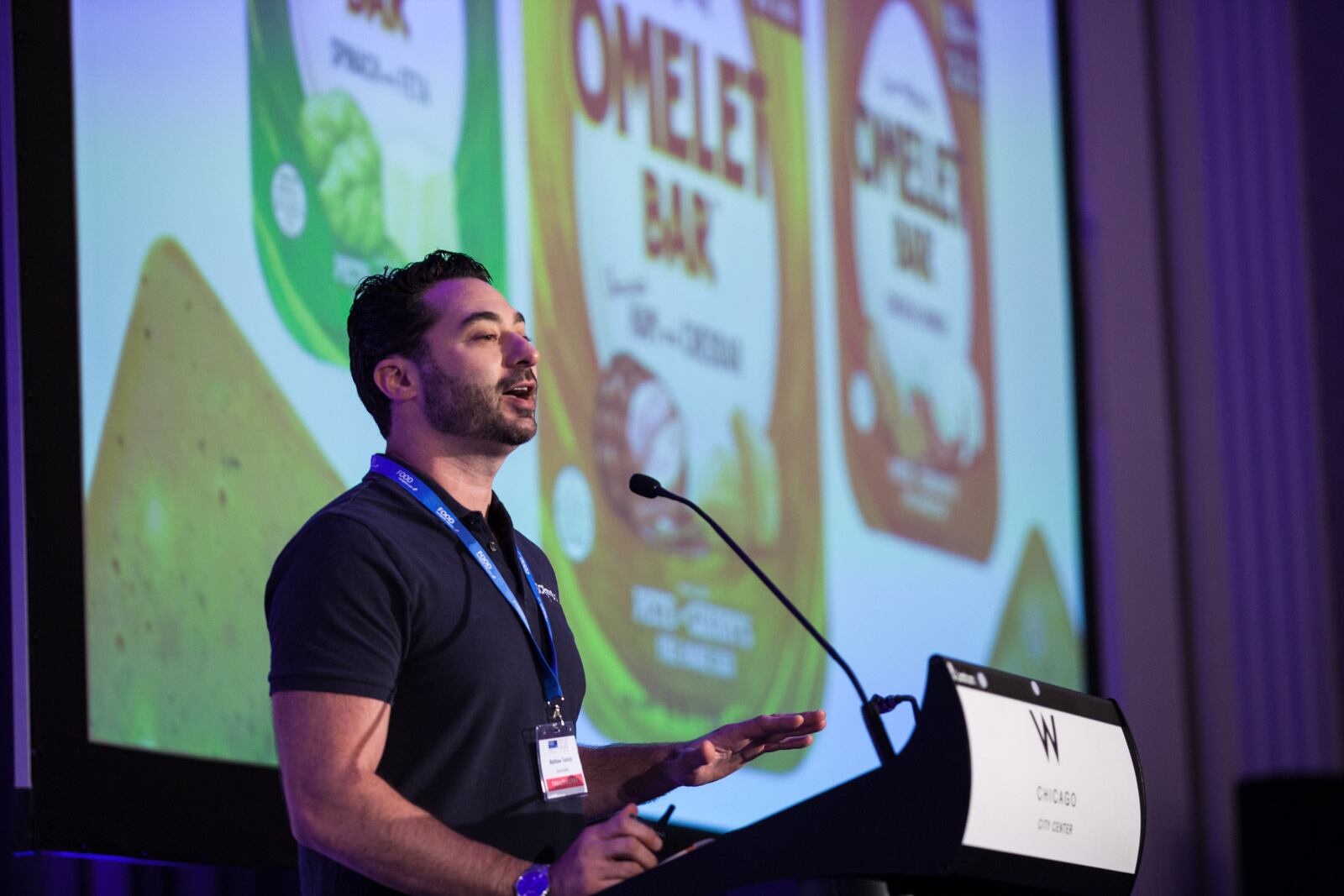
Matt Tolnick at Scramblers – our second 2019 trailblazer - said his patent-pending shelf-stable microwaveable omelet bars (with whole egg as the #1 ingredient) would appeal to kids and their parents. But "pioneering a new segment is brutally difficult," noted Matthew Sade from our expert panel, which provided live feedback on stage.
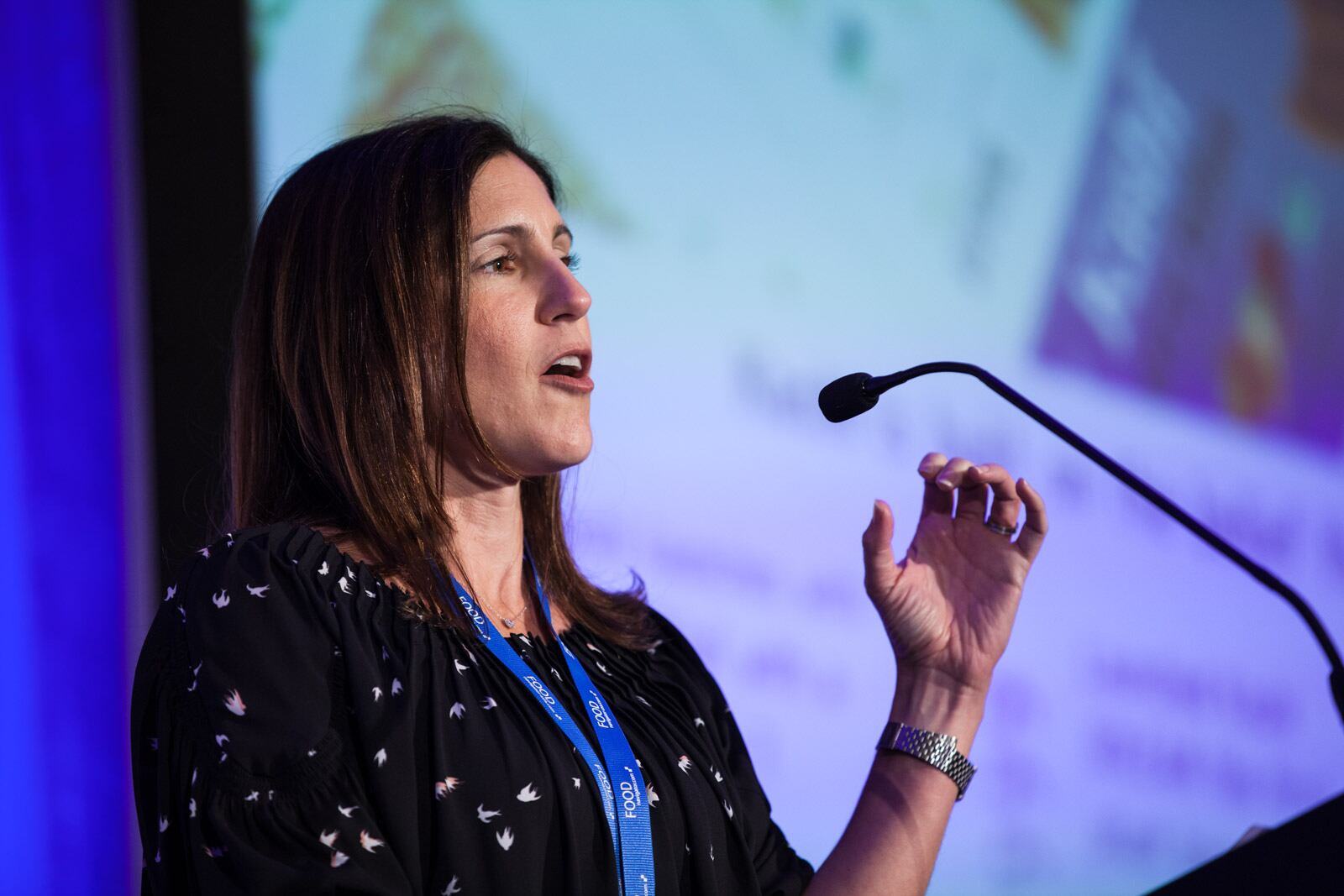
Kashi’s new 'By Kids' line with chickpeas, lentils & purple corn, was developed in collaboration with five Gen Z leaders, says Jeanne Wilson, the third winner of the 2019 FOOD FOR KIDS trailblazers challenge.
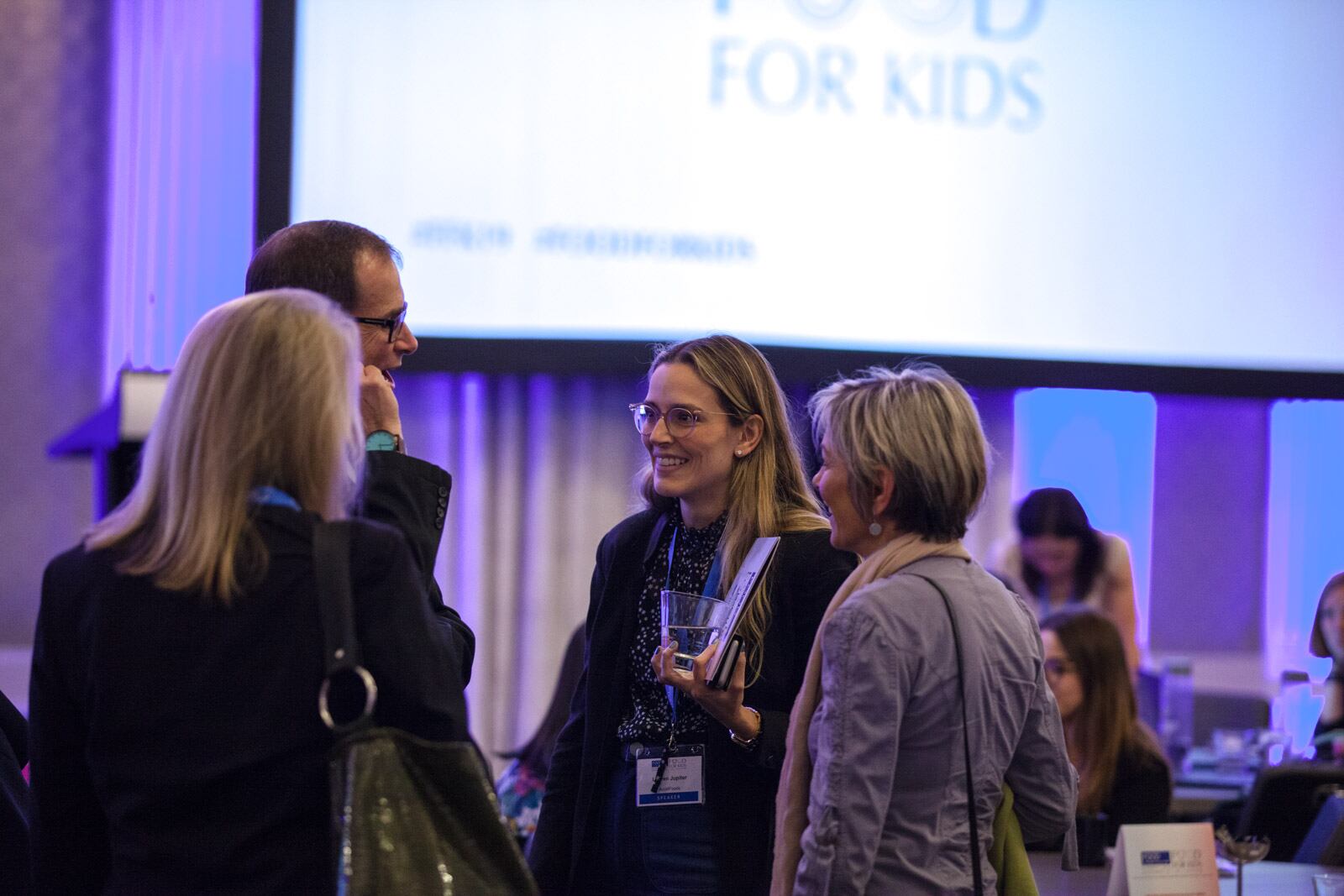
Our three trailblazers were given live feedback on stage from our expert panel (pictured here chatting before they hit the stage) Matthew Sade from Freeli Foods, Lauren Jupiter from AccelFoods (center), and Barb Stuckey from Mattson (right).
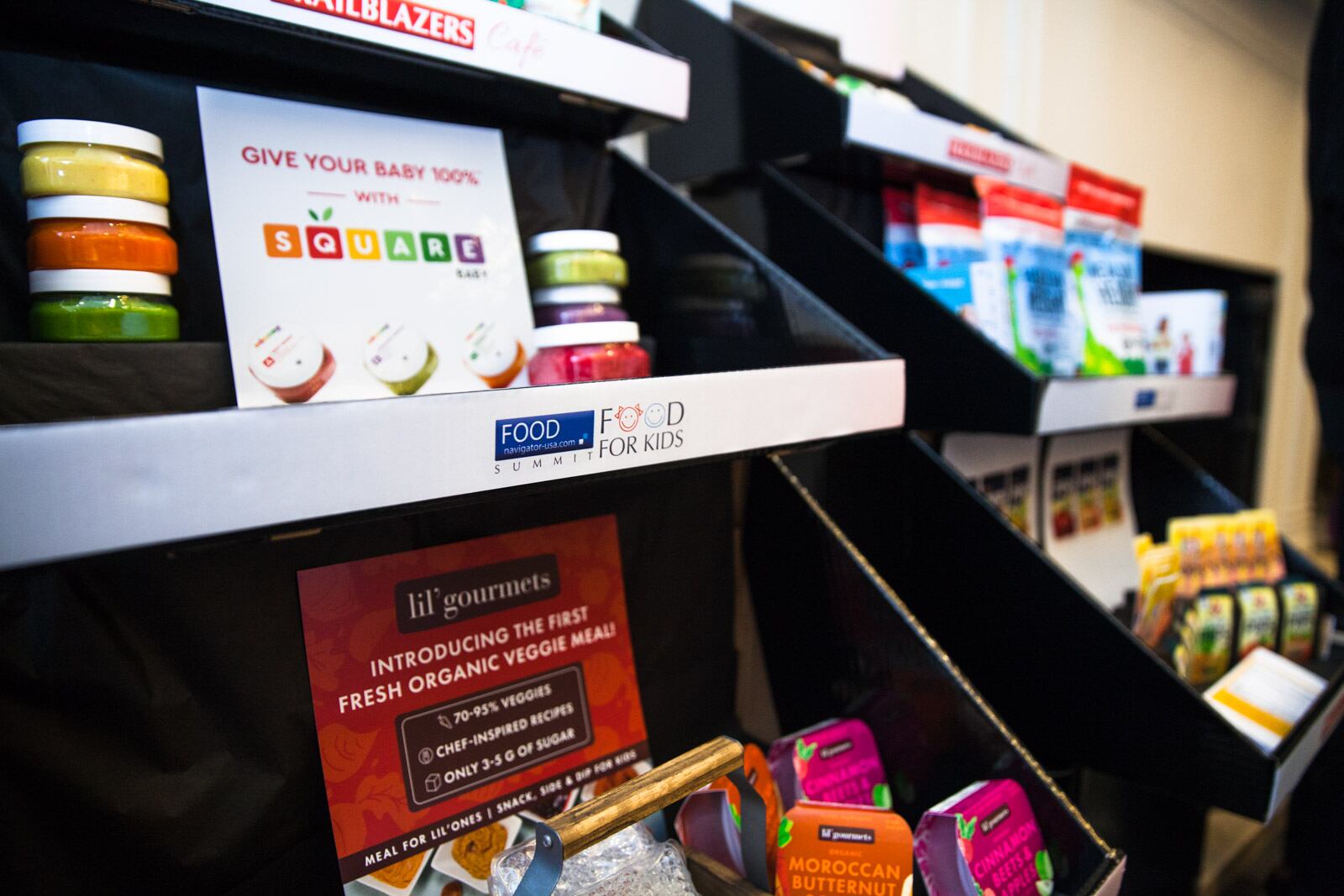
Congratulations to our three trailblazers Cerebelly, Kashi by Kids, and Scramblers, and our runners up: lil'gourmets, Little Pickins, Nurture Me, Else Nutrition, Healthy Height, Square Baby, Zeek Bar, Feel Better Pops, Nuttee Bean Co, Lunchies, and Beautiful Biosolutions.

To what extent can a child’s health outcomes be impacted by what moms eat during pregnancy? You’d be surprised, said Dr Robert Murray from Ohio State University, who said a mother's diet is powerful epigenetic force during fetal growth and development and that deficiencies in iron, calcium, choline and vitamin D can impact her child's future health.

When it comes to childhood obesity, "There’s no silver bullet, but rather silver buckshot that needs to be applied," said former CDC official Dr William Dietz, who noted that 21% of 12-19 year olds are dealing with obesity, and pointed to a correlation betweem sugar drink consumption in infancy and obesity prevalence in six-year-olds.
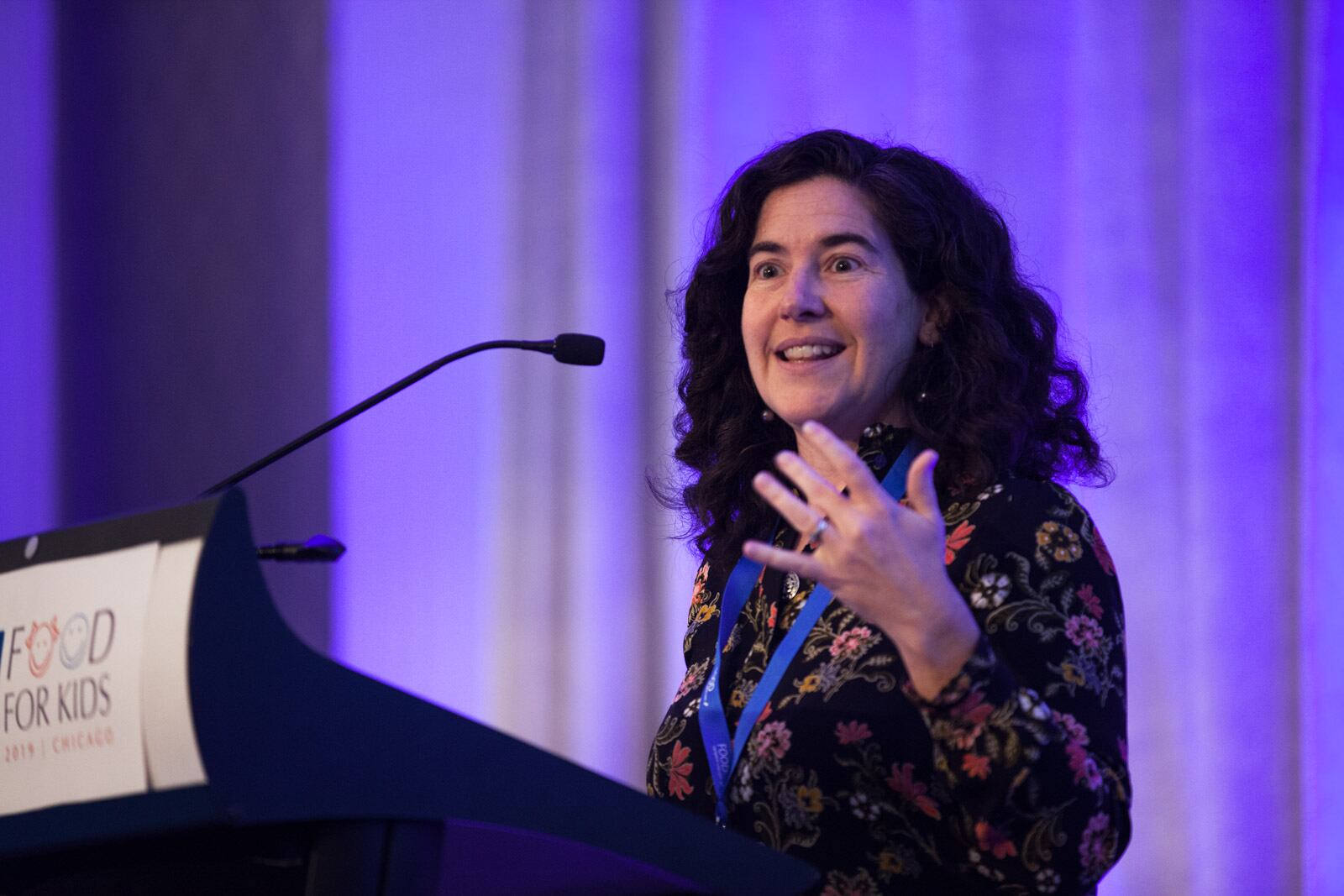
Can you train kids to love broccoli? It’s not as far-fetched as it sounds, said Dr. Catherine Forestell at William and Mary, who says we can shift some hardwired preferences (such as a wariness of bitter things) through early sensory experiences. "Our biology is not our destiny."
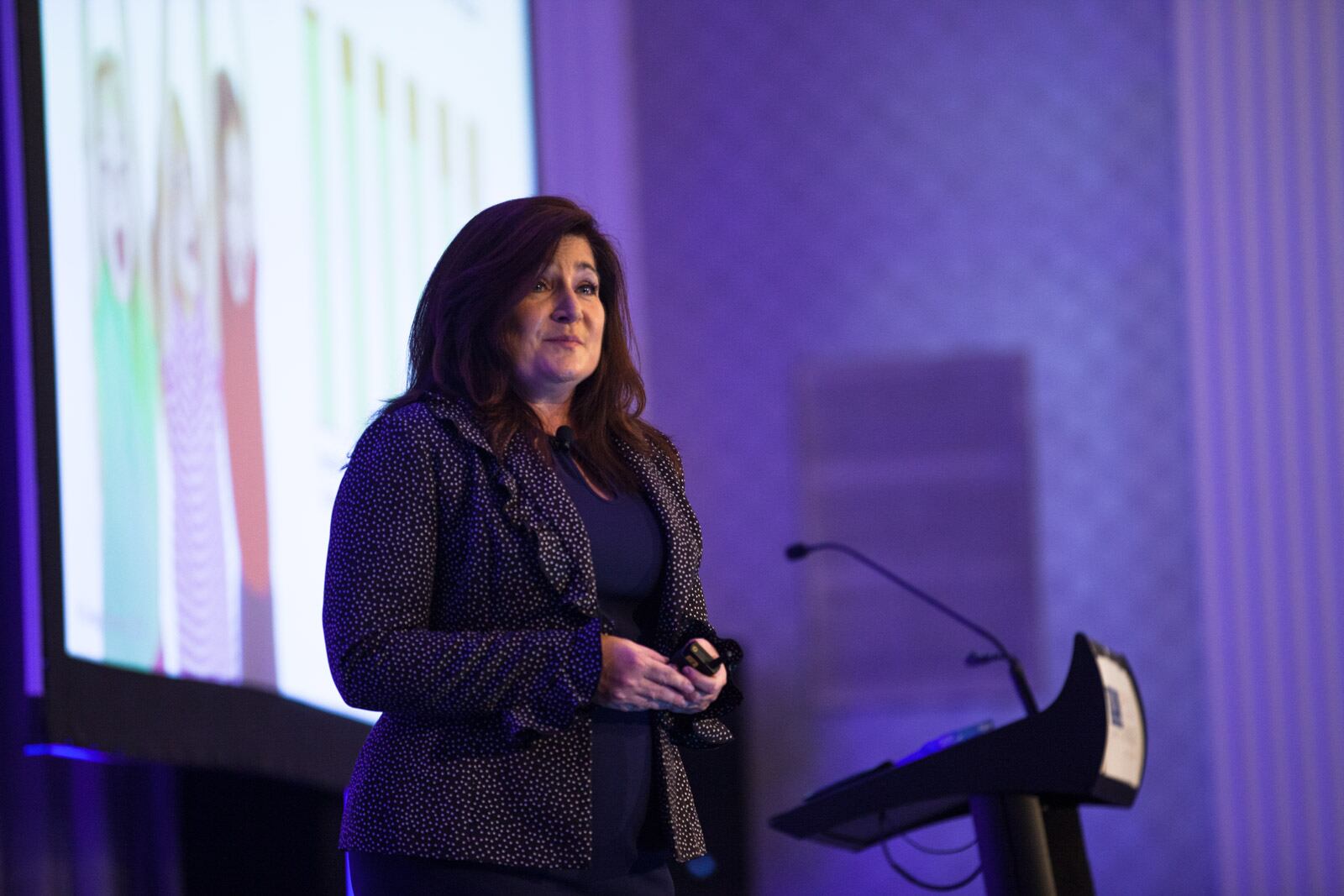
New consumer data from Linkage Research shows that 46% of US parents who say they plan to give their kids more 'plant-based alternatives' in future say this is because they are "healthier." However, manufacturers have work to do to make some plant-based meat and dairy alternatives more appealing to children, said Michele DeKinder-Smith.

Whereas last year's panel explored the merits of 'fresh' babyfood, this year the focus was on flavor and formulation, with Serenity Kids blazing a trail with meats, veggies and healthy fats, and lil'gourmets adding spices to make veggies delicious. At direct to consumer brand Raised Real, meanwhile, Santiago Merea noted that he had just as much interest from the Midwest, Florida and Texas as wealthy 'coastal' consumers.

While it can take multiple exposures to certain foods (notably veggies) before kids will embrace them, packaged food manufacturers don't get 8-12 attempts to impress their target audience, which can lead to more conservative choices when it comes to flavor, and a tendency towards sweeter formulations, said Curion and Kraft Heinz.
However, sugar doesn't trump everything else when it comes to preference, they said.

DSM's online survey of 600 mothers of US children aged 4-12 revealed that more than a third identify their child as a 'picky eater,' while 16% have to accommodate a specific dietary requirement. 75% gave their children supplements, with gummies the preferred format. The top attribute Moms look for on food labels is 'no added sugar.'

Chobani is hoping to unlock an incremental growth opportunity in the sluggish yogurt category with Gimmies, a dedicated brand supported by a new set of characters designed to appeal to younger kids, explained president Peter McGuinness. "We're trying to make it fun. If you get too righteous... kids switch off."
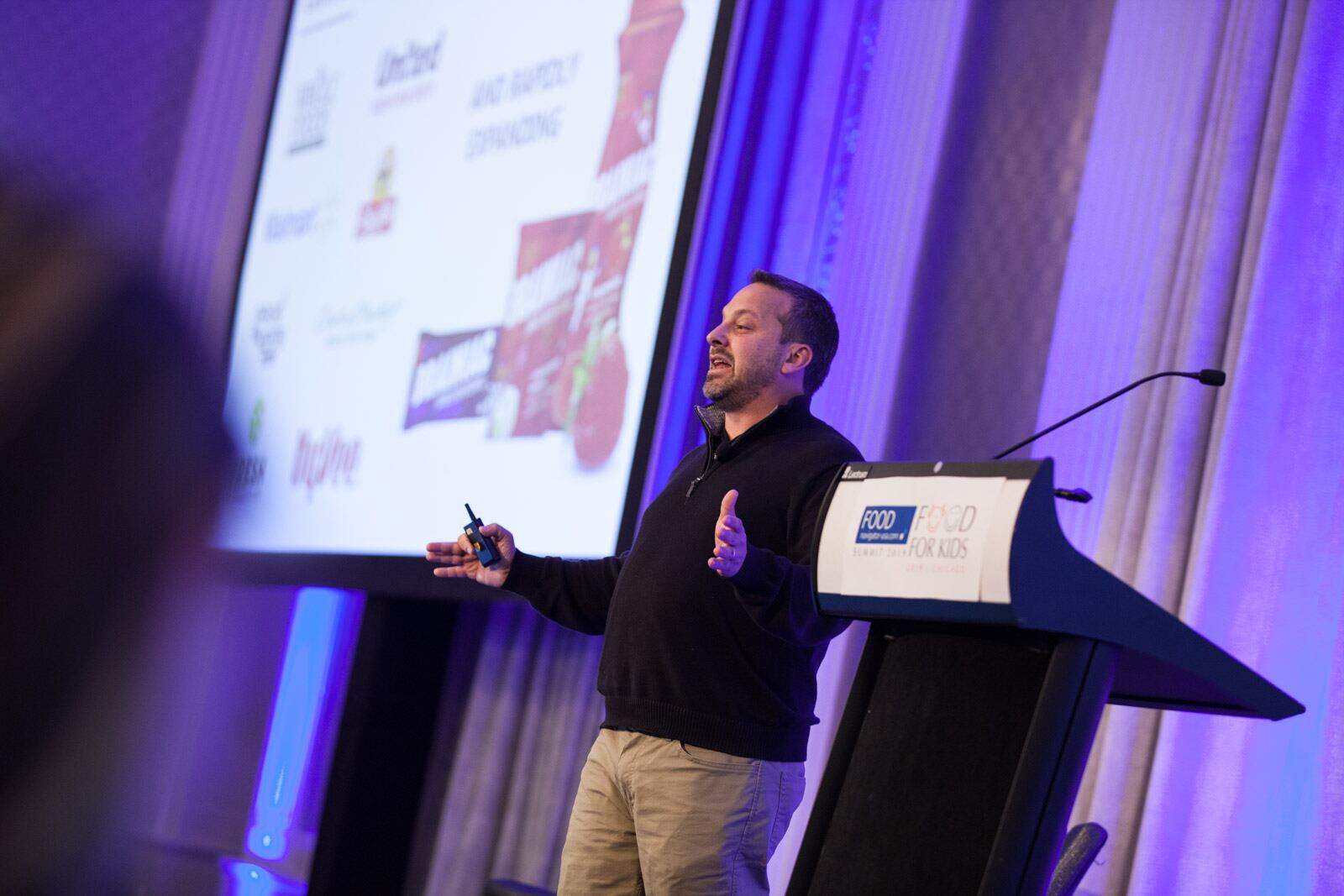
We pay a lot of attention to the first 1,000 days (from conception to two years), but after that, the nutritional rot can quickly set in, said Brainiac Kids co-founder Jonathan Wolfson, who is adding DHA, ALA and choline to his kids' yogurts, yogurt drinks, and apple sauce pouches on a brain health platform.

Next, Dr Robert Murray from Ohio State, Dr Mickey Rubin from the Egg Nutrition Center, and Jonathan Wolfson from Brainiac Kids took to the stage to talk brain food: "The brain doesn't grow homogeneously like a mushroom," said Dr Murray. "Each part of the brain grows at different times and speeds. The key nutrients are iron, iodine, choline... Are they getting the right dose at the right time?"

A healthy lunch shouldn’t take hours to prepare, break the bank, or end up in the trash on the way to recess, said Matthew Sade from Freeli Foods, a new brand dedicated to making lunchtime tasty, healthy, and convenient for children with microwaveable pouches (Noodles with Chicken & Veggies, Mac & Cheese, Fiesta Bowl, and Pasta & Meat Sauce).

We rounded off day two of the summit with a thrilling view of Chicago from the skydeck at the top of the Willis Tower...

To Matt Cohen at Kidfresh Foods clean label means "ingredients you can pronounce and that exist in nature," while at Yummy Spoonfuls, "sweet doesn't have to mean processed sugar," said founder Agatha Achindu. "It could be apples, it could be sweet potatoes."

Clean label used to mean avoiding ‘artificial’ ingredients. Today, consumers want brands to address things that don’t appear on the label, from heavy metals to pesticide residues, especially in food for kids, said Jackie Bowen at The Clean Label Project (pictured right).

There's a big opportunity to develop more bottled water products that appeal to kids, said Howard Telford at Euromonitor International, while adding coconut water to juice products can reduce calories while maintaining your 100% juice credentials, he said. At Rethink Brands, meanwhile, Matt Swanson said he had found the sweet spot with a 5% organic apple juice product with extra sweetness from monk fruit.
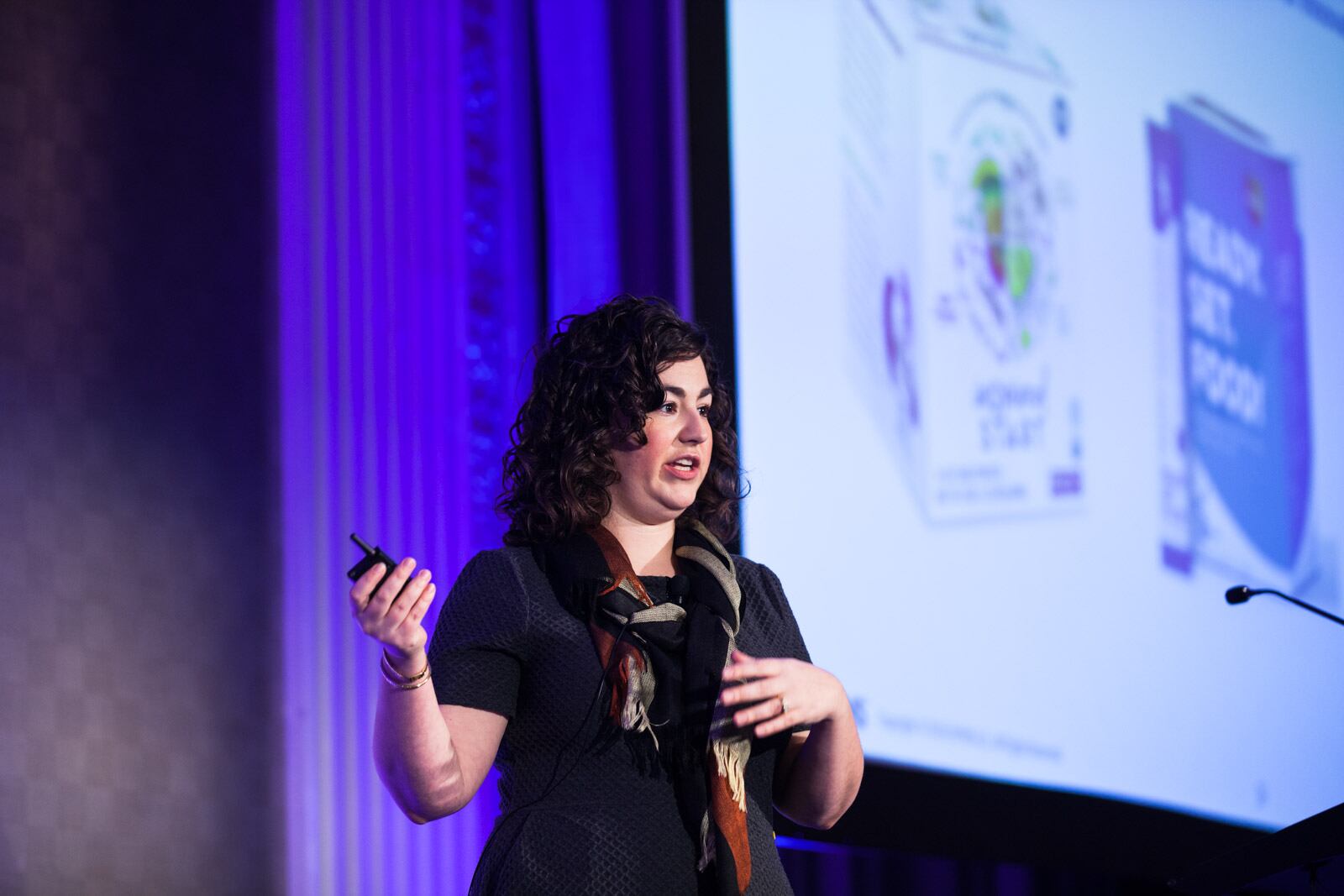
The next generation of kids' foods and beverages may have a more functional slant, drawing inspiration from trending items in the supplements aisle, from probiotics, melatonin and elderberry to long-chain omega-3 fatty acid DHA, phosphatidyl serine, vitamin B complex, medium chain triglycerides, and medicinal mushrooms, said Jessica Hochman at SPINS.

Ruckus and Co. lunchbox smoothies for kids were developed by the SnackFutures innovation hub at Mondelēz International, with the R&D and culinary expertise of CCD Innovation and the creative guidance of Interact Boulder, said Interact creative director Fred Hart (pictured left): "The tough part is we have two audiences that we have to speak to at the same time.
"We have parents who are gatekeepers to the home and need to understand the proposition, and secondly, kids that absolutely have to live the brand. They're the ones that experience it and bring it to school."
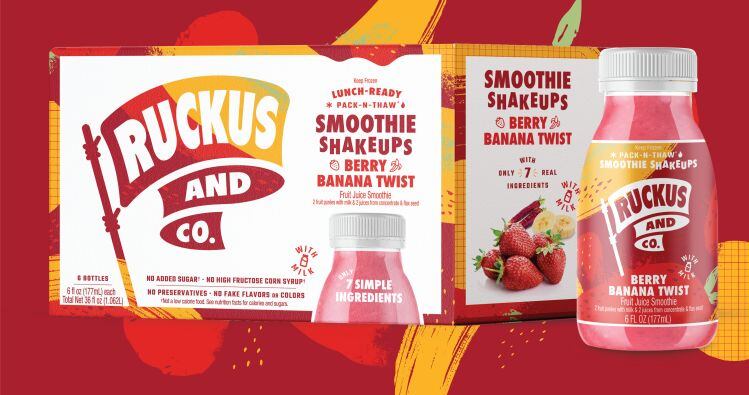
Ruckus and Co smoothie shakeups contain fruit puree, organic whole milk, veggies such as sweet potato or purple carrot, flax or chia (depending on the flavor), and water. They come frozen in individual bottles packaged in a 6-pack box (SRP $1.59-$2 per 6-ounce bottle) and are chilled and ready to go by lunchtime.
A pilot launch at select retailers is scheduled for January 2020.

If you want to find the least nutritious – and the least innovative – part of any QSR menu, look no further than the kids menu. But fast-casual for kids can be healthy and fun, said Shannon Seip at Bean Sprouts Café, which is opening four new locations over the next five months.
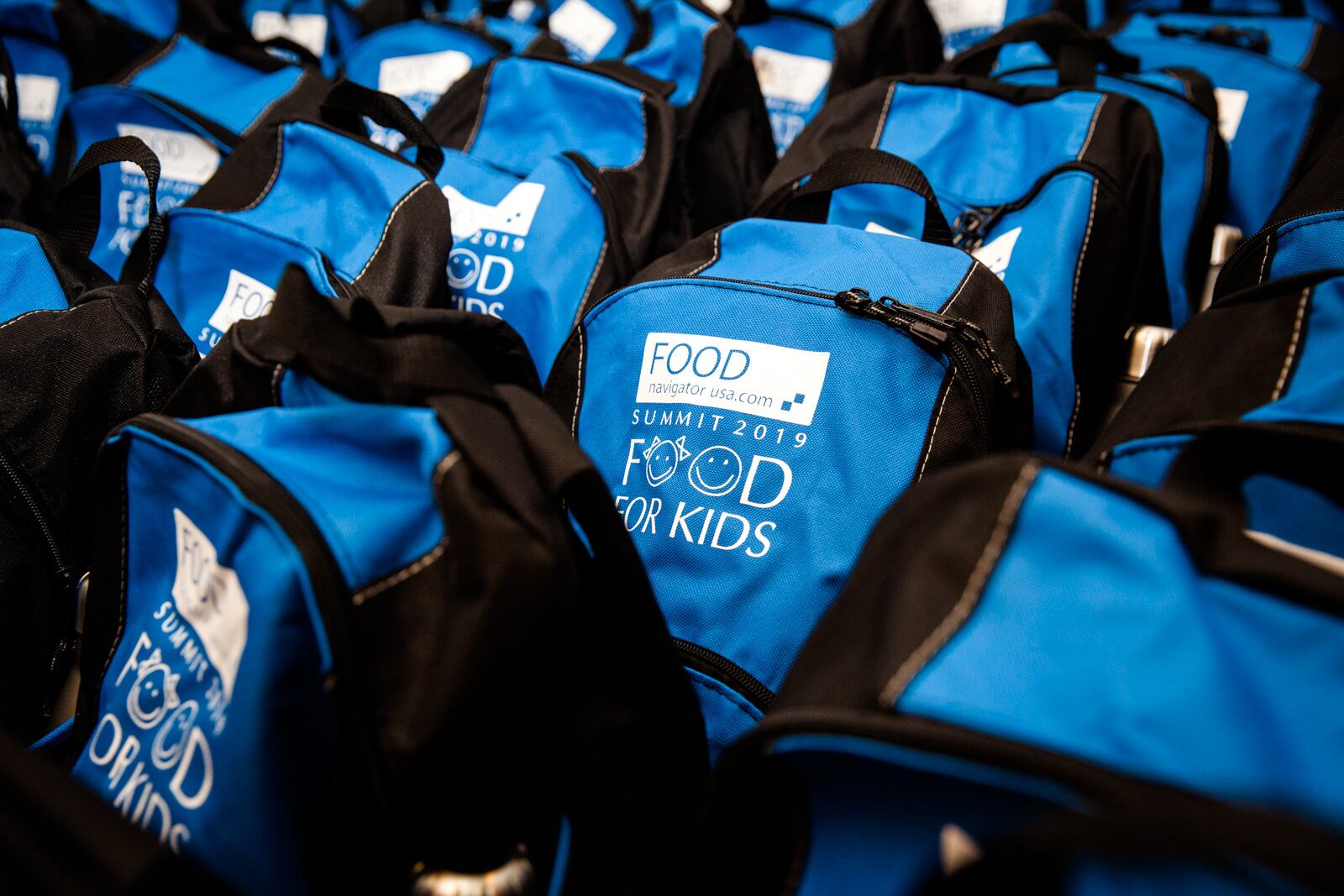
We can't wait to continue the conversation at FOOD FOR KIDS in 2020!! If you have ideas about how we can build on the event, or you want to speak, drop FoodNavigator-USA editor Elaine Watson a line at elaine.watson@wrbm.com.

